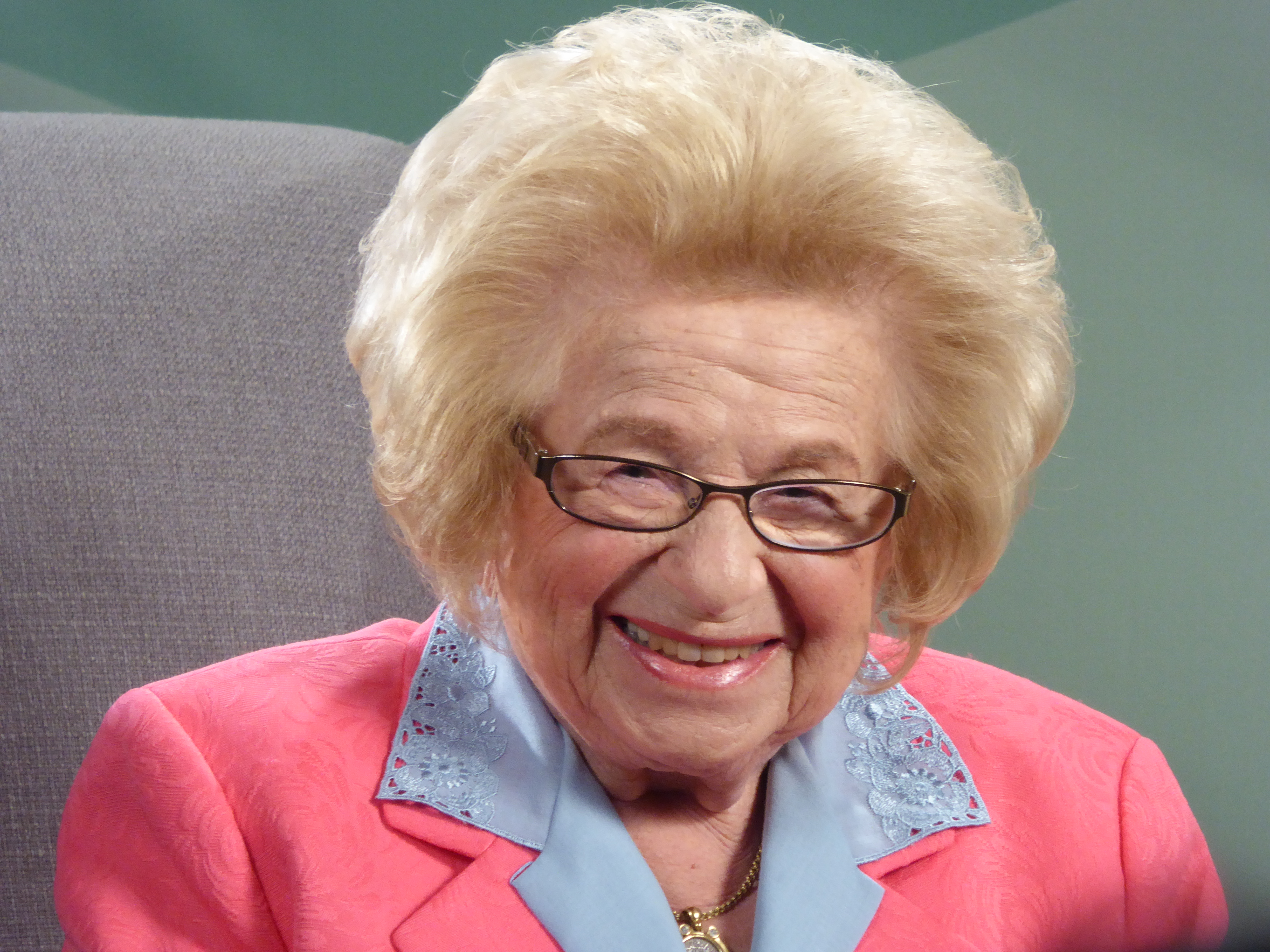I’ve known the loneliness of being separated from my family at the age of ten, becoming a refugee, and never seeing my parents or grandparents again. I’ve known the loneliness of illness and disability, the kind that crashes over you when your body has been pierced by shrapnel and you’ve been severely wounded in a bomb blast, have lost part of your foot, and are sure you’re about to die. I’ve also known the loneliness of feeling unchangeably other. While my four-foot-seven height has always been a punch line on late-night television, and while being shorter than most everyone else has surely helped me stand out professionally, it’s also been profoundly isolating. I often thought that no man would ever want me and that I’d never get married. But I did manage to get married, three times, in fact. The first two marriages ended in divorce and the third, to Fred Westheimer, lasted thirty-five years, until he passed away; he was the love of my life.
My personal experiences with loneliness aren’t the only reasons I was named Ambassador to Loneliness. My work as a sex therapist made me uniquely qualified to help. Sexual dysfunction and loneliness both carry stigma. Nobody is excited to admit they’re having difficulty in the bedroom. Nobody is thrilled to confess they have too few reliable friends.
When I saw clients, I didn’t spend time delving into their past. I simply helped anyone who came to see me—or listened to me on the radio or watched me on TV—have better sex by modifying how they engaged in sex. And this is the approach that I am taking with The Joy of Connections. If you are lonely, what you need is practical advice on beating back this scourge, and this is what I am going to provide.
Invest in Your Body
You might be shocked to learn, since I am known for talking about sex, that for many years, on and off, my husband Fred and I slept in separate beds. (He snored!) Please don’t worry: We found many other places and times to be intimate. But I am a more patient person and generally a much happier person when I get enough rest, and because of that, Fred and I made the joint decision that sleeping apart from time to time was worth it for both of us.
Sleep has always been important to me. One of the hardest aspects of getting back to my normal and busy routine after I had a stroke in 2023, and another minor one this year, was all the trouble I had falling asleep and staying asleep. When it was finally morning and time to begin my day, I was often too tired to do all the talking and planning I wanted to do. I worked with my doctors, changing a few poststroke medications, to get my sleeping routine back on track.
My situation didn’t get better immediately, and while that was incredibly frustrating to me, it slowly improved. I want you to think about how much sleep you’re getting. And while you’re at it, think about how well you’re eating and how much exercise you’re getting. If you are not prioritizing rest, if you are not investing in your body, you likely won’t have the interest or stamina to engage with other people, and interacting with other people is the only way to create and maintain meaningful connections.
Indulge Yourself
If you’re lonely, you may not have the opportunity to be touched very often. One way to counter this vacuum is to treat yourself to manicures, pedicures, and massages. Or visit an acupuncturist. There’s no right or wrong number of times to go—indulging every now and then is a chance to feel a sense of physical connection.
When I first hit it big, I bought a massage table and hired a masseuse to come to my apartment once a week. Everyone who worked for me knew I was not available during that time. I was enjoying myself. I was recharging my batteries. I looked forward to being rubbed all over!
By the way, it’s possible to enjoy the benefits of massage without spending any money at all. Research at the University of Miami School of Medicine shows that self-massage— rubbing your own arms and legs— also provides positive effects. Why not give it a shot?
Make Peace with Yourself
You will not be able to sustain healthy relationships if you don’t love yourself first. No friend or sexual partner can do all that emotional heavy lifting for you, and worse, you might build walls around yourself that are so high that you’ll prevent anyone from scaling them.
I am not suggesting you brainwash yourself into thinking that you’re a gorgeous model if you’re not, and I am not asking you to ignore physical or mental disabilities that make your life more difficult. Brushing off hardship is not what I’m saying to do. My advice is to gradually accept what makes you different and begin relationship-building from there.
As I write these words, I do, in fact, love myself, but I had a very hard time being OK with who I was when I was young. My height put me so far outside the realm of normal that I was shocked to learn many years later that I was able to become pregnant. I thought carrying a child would be biologically impossible. (I’m still overjoyed that my fear was misplaced!)
If you struggle with a disability, loving yourself will be easier if you recognize the obstacles society puts in the way of your efforts to deepen friendships and have sex. Focus instead on what makes you exceptional. Mental and physical differences don’t diminish your value. Only after I began to appreciate how smart I was and how advanced I was in school did I recognize that regardless of my height, I was worthy of love. I want the same for you.

Excerpted from The Joy of Connections 100 WAYS TO BEAT LONELINESS AND LIVE A HAPPIER AND MORE MEANINGFUL LIFE By Dr. Ruth K. Westheimer with Allison Gilbert and Pierre Lehu



